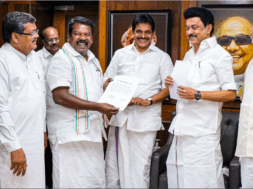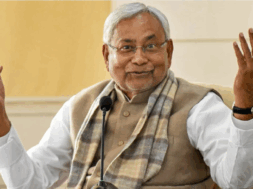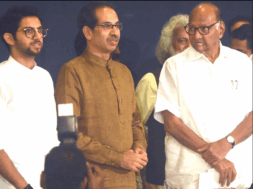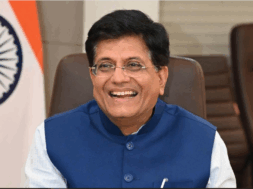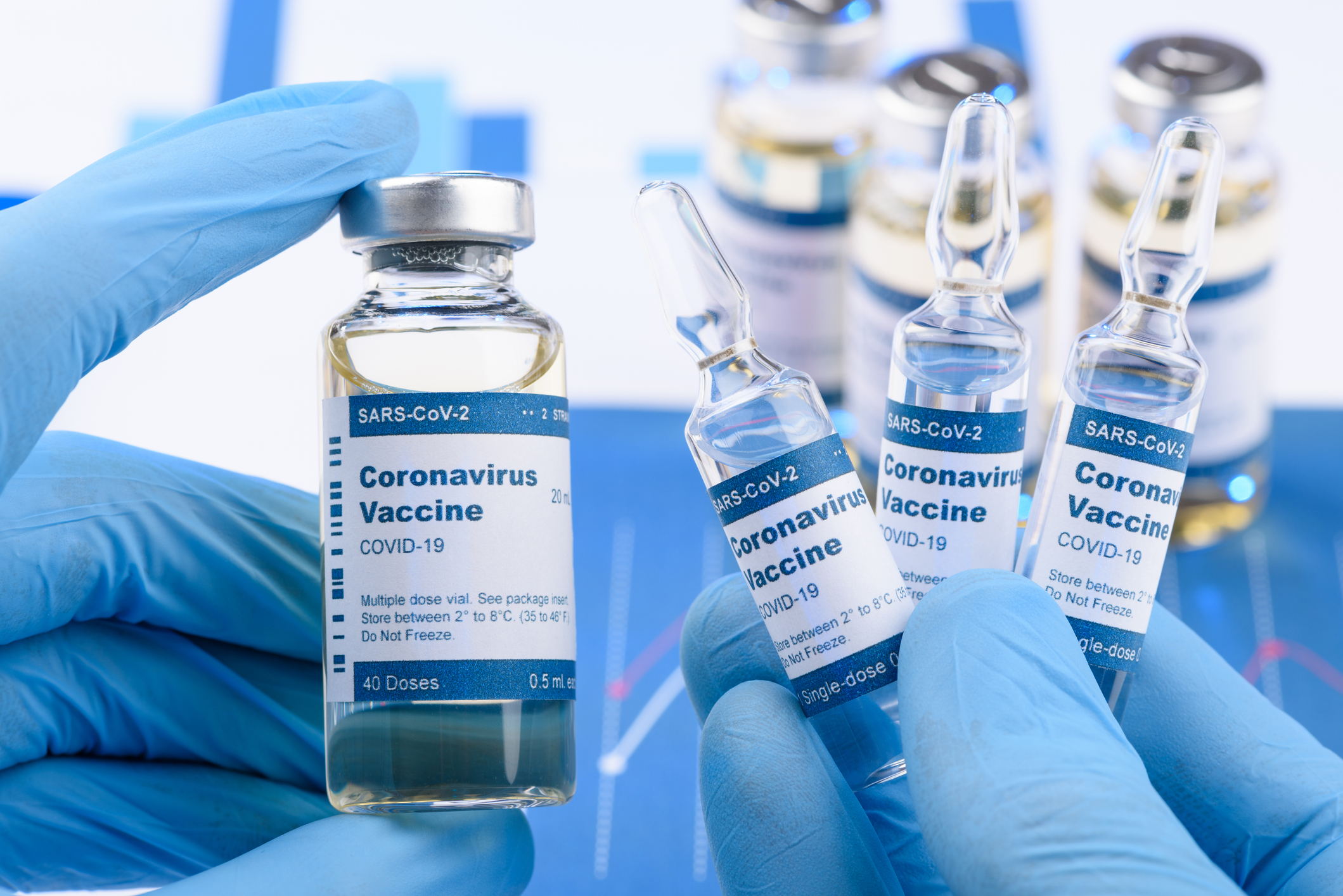
Government Cautions Travellers: “R Factor Rising in Some Districts”
Manas Dasgupta
NEW DELHI, Aug 3: The Covid pandemic is still raging in the country and it is “still not over,” the government cautioned on Tuesday amidst people over-crowding the streets and shops in urban centres and more particularly at the tourist destinations as the travel restrictions eased.
The cautioning came even as India on Tuesday reported 30,549 new Covid cases and 422 deaths in the past 24 hours, a sharp drop from the 40,134 cases reported on Monday.
Dr VK Paul, the head of the government’s Covid task force, pointed out that eight states in the country have shown a rise in the R-factor calling it a “significant problem”.
As many as 44 districts have reported a high case positivity and the Delta-driven second wave is still not over as 18 districts showed an increasing trend in cases in the last four weeks, he said.
“Delta variant is a dominant problem. The pandemic is still raging and the second wave is persisting in our own country,” Dr Paul said, expressing concern about the R-factor or the reproductive rate of a virus, which indicates how fast it is spreading.
“Please remember that R number should be 0.6 or below. If it has gone over 1, it shows it is a significant problem and the virus wants to spread,” said Dr Paul.
The R factor was more than 1 in eight states, including Himachal Pradesh, Jammu and Kashmir, Tamil Nadu and Kerala. An R-value above 1 means more than one person is being infected, on an average, by an already-infected person, and that leads to a surge in cases.
Lav Agarwal, Joint Secretary in the Union Health Ministry, told the media persons, “The R-number is high in eight states of India. Whenever this number is above one, it means that the case trajectory is increasing and it needs to be controlled. US, Canada, Australia and India have 1.2 R number on average.”
The states where the R-factor is more than one are Himachal Pradesh, Jammu and Kashmir, Lakshadweep, Tamil Nadu, Mizoram, Karnataka, Puducherry and Kerala.
Only Andhra Pradesh and Maharashtra show a declining trend and states like Bengal, Nagaland, Haryana, Goa, Delhi and Jharkhand the R-factor is at 1.
The ‘R’ factor – a statistic used worldwide to track and control the spread of the virus – is a measure of how many people are being infected by one infected person.
An ‘R’ of 2.0 indicates that one person with COVID-19 will, on average, infect two others. Each of those two will infect two more (spreading the disease to an average of four people).
In a pandemic, the ideal ‘R’ target is below 1.0, which ensures that the virus will eventually stop spreading because it cannot infect enough people to sustain the outbreak.
According to the media reports the R-number was declining until the last week of June but in the subsequent period, between June 20 and July 7, it moved up significantly. An analysis by a team of researchers, led by Sitabhra Sinha at the Institute of Mathematical Sciences in Chennai, showed that during this period the R-value for the country as a whole was at 0.88, up from 0.78 for the period between May 15 and June 26.
The Centre pointed out that in the last week, 49.85 per cent of the total Covid-19 cases reported in the country were reported from Kerala.
Agarwal added, “There are 18 districts, including 10 districts of Kerala where an increasing trend in cases is seen. These 18 districts are from six states — Kerala, Maharashtra, Manipur, Arunachal Pradesh, Mizoram ad Nagaland — which are contributing 47.5 per cent of the total Covid cases now. Moreover, there are 44 districts where the case positivity rate is over 10 per cent. These districts are in Kerala, Manipur, Mizoram and Nagaland among others. The number of cases has decreased in 222 districts. On June 1, there were 279 districts where over 100 cases were reported but this number has come down to 57 districts now,” he said.
Agarwal also said the second wave is still not over in India. A high number of Covid cases are being reported across the world and the pandemic is far from over, he added.
Speaking on vaccination, the Health Ministry said around 47.85 crore doses have been administered in the country so far, including 37.26 crore first doses and 10.59 crore second doses.
“We administered 19.6 lakh doses in May and 43.41 lakh doses in July. The total number of vaccine doses administered in July is more than double of that in May,” Agarwal said.
Meanwhile, the government said the monthly production capacity of Covishield is projected to be increased to more than 120 million doses and of Covaxin to around 58 million doses by December.
The Union Health Minister Mansukh Mandaviya told the Rajya Sabha citing information from the vaccine manufacturers, “As communicated by the manufacturers, the monthly vaccine production capacity of Covishield is projected to be increased from 110 million doses per month to more than 120 million doses per month and the production capacity of Covaxin is projected to be increased from 25 million doses per month to around 58 million doses per month.”
The minister gave the information in a written reply to a question on the current capacity to manufacture Covaxin and Covishield in the country, and the expected capacity going forward from August to December 2021.
Further, the Department of Biotechnology under the Ministry of Science and Technology has launched ‘Mission Covid Suraksha – the Indian COVID-19 Vaccine Development Mission’.
The Mission is being implemented by Biotechnology Industry Research Assistance Council (BIRAC), a public sector undertaking (PSU) of the Department of Biotechnology, the reply stated.
Under the Mission, facility augmentation of Bharat Biotech and one state public sector enterprise and 2 central public sector enterprises (PSEs) – Haffkine Biopharmaceutical Corporation Ltd, Mumbai; Indian Immunologicals Limited (IIL), Hyderabad and Bharat Immunologicals Biologicals Limited (BIBCOL), Bulandshahr – for production of Covaxin have been supported.
In addition, technology transfer of Covaxin production to Gujarat COVID Vaccine Consortium (GCVC), including Hester Biosciences and OmniBRx Biotechnologies Pvt Ltd, led by Gujarat Biotechnology Research Centre (GBRC) of Department of Science and Technology, Government of Gujarat, has also been facilitated, the reply said.
Further, the Centre has also extended financial assistance to one of the domestic manufacturers for ‘At-risk manufacturing’, advance payment against the supply orders placed with Serum Institute of India and Bharat Biotech, besides streamlining regulatory norms for approval of vaccines, the reply added.
